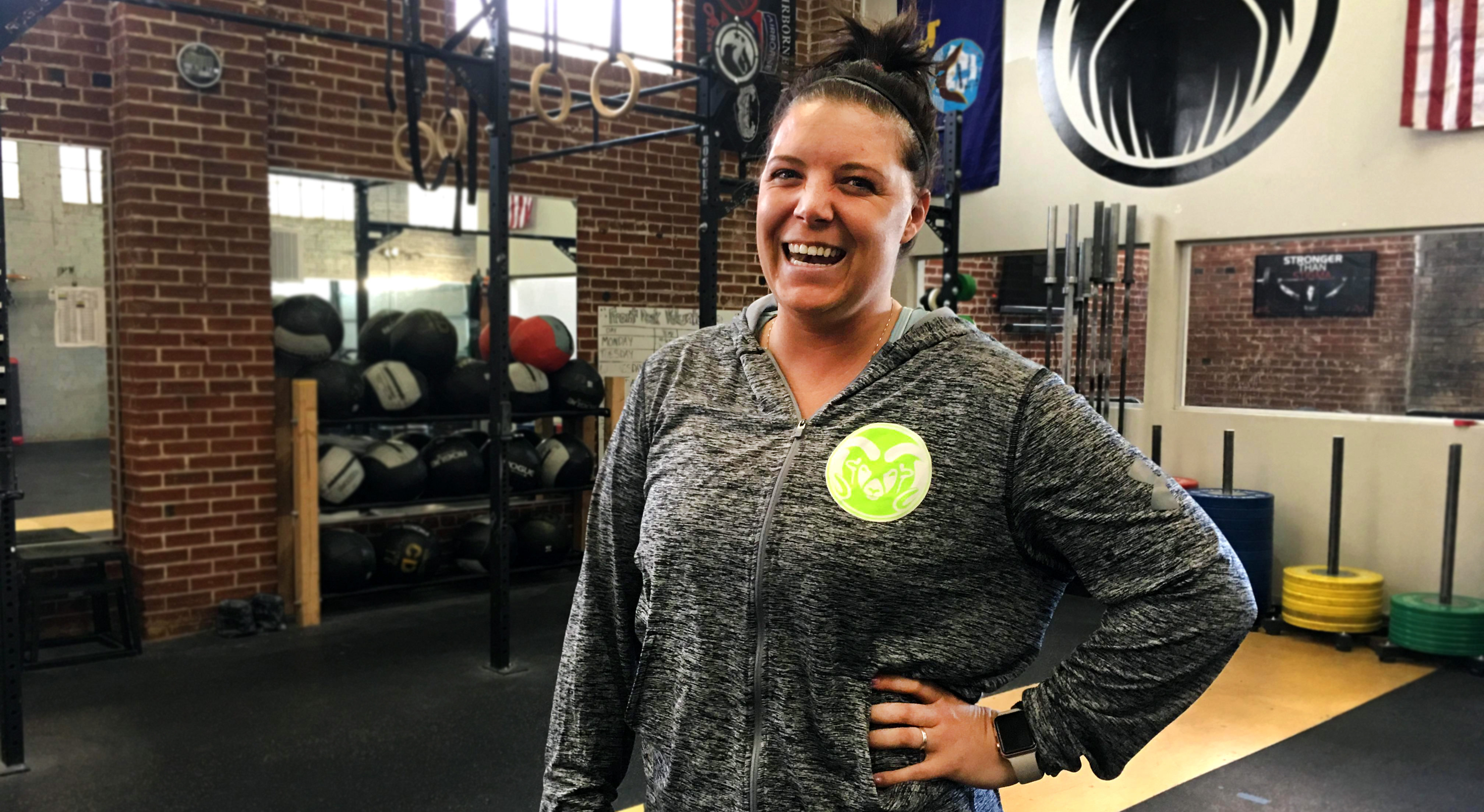Picture a large CrossFit gym in downtown Denver. Inside, there’s a small yoga class of about 10 participants. You see a blend of yoga pants, jeans, hoodies, and baseball caps side-by-side on the yoga mats. Some participants move gracefully through the poses, some a bit more awkwardly. The class is made up of adults on probation or parole, probation/parole officers, and mental health practitioners. But toward the end of class, they’re all in the same Child’s Pose.
This is a beautiful picture of how the PHASE program is impacting this Denver community.
“We’re meeting clients where they’re at,” said Katelyn Cole, PHASE project coordinator. “When you come here, yeah, you’re on probation and you have a substance use history. But at the end of the day we’re all human beings and we’re to be treated the same.”
PHASE prepares individuals for intensive services
Many individuals on probation or parole struggle with some combination of mental illness, substance use, trauma, homelessness, unemployment, and overall instability. They need, but oftentimes aren’t yet ready for, intensive treatment services. PHASE bridges that gap.
PHASE is a stabilization program that helps individuals develop the self-management strategies and skills necessary to successfully engage in behavioral health services and complete the requirements of their probation or parole.
“Most of the folks that come here have a history of low-level offenses,” said Katelyn. “They’ve probably been in and out of the system a lot, they’ve often been on probation multiple times. They have no support, no resources. So PHASE helps with that.”
And it works. In 2017 alone, the PHASE program served 130 clients, 109 of which are still receiving services at the WellPower.
“This is the best program for me,” said Phillip, a PHASE participant. “This place keeps me on the right track. Before PHASE, I always failed on probation. With PHASE, they walk you through it.”
Creating a supportive space for individuals on probation/parole
Oftentimes individuals on probation or parole are hesitant to report to their probation/parole officers (POs), largely due to mental health concerns. PHASE creates a safe, supportive space that reduces barriers between POs, mental health practitioners, and program participants.
Through PHASE, individuals can engage in behavioral health and physical activity groups two days a week at The Phoenix, a free sober active community gym in downtown Denver. Katelyn, the POs, and interns from the University of Denver work out alongside PHASE participants through yoga and boxing classes. Afterward, they sit down together for a group treatment session. Topics range from relapse prevention to emotional regulation to cognitive behavioral therapy (CBT) techniques.
“I’ve done other programs, and I’d say PHASE is probably set up the best as far as helping me relate to my mental illness and my substance use,” said Stacey, a PHASE participant who has been attending for a little over a year.
“It helps you be mindful of community and your environment and your peers and how all that comes together,” said Stacey. “When I started this program, I was shooting up heroin every single day for two years. PHASE saved my life. This is a good approach, the PHASE program. It’s a safe place to learn and express your questions on mental health and substance use and we can be totally honest and not be judged.”
She particularly appreciates the yoga and boxing classes. “My whole thing when I’m sober is I have a hard time with weight,” said Stacey. “That’s what started me using, trying to control my weight. Kickboxing is a hard workout. And the yoga is good for the meditation. It gives you a total out and another place to go to spend your time in a healthy way.”
An innovative partnership in our community
Overseen by the Denver Crime Prevention and Control Commission (CPCC), PHASE is a partnership between the WellPower, the Denver Adult Probation Office, and The Phoenix.
“PHASE is a really unique program,” said Katelyn. “There’s nothing else like it.”
Here’s how it works: When an individual gets sentenced to probation or released on parole, somewhere along the line their probation/parole officer (PO) will discover the individual has a mental health concern (often in addition to substance use). The PO will send a referral to Katelyn, who will then meet with the individual, provide a diagnosis, and connect them to the PHASE program.
Once Katelyn determines that an individual is ready to participate in more intensive services, she conducts an intake with them so they can get paired with a case manager and connected with services at WellPower. From there, Katelyn serves as a bridge between POs and case managers.
“I’m that bridge between mental health and criminal justice. I’m trying to make sure the case managers and POs are all on the same page,” said Katelyn. “The POs are going to care more about the probation/parole piece, and the case managers are going to care about the mental health piece. So let’s partner.”
It’s this partnership that enables PHASE to holistically empower the people we serve, from completion of probation/parole to mental health care to overall stability.
“We’re the biggest support system they have,” said Katelyn. “They know PHASE. They can come to PHASE. To see someone come from probation or parole at their worse, and now months later, here they are at their best. That’s beautiful to see. Yes, there’s going to be bumps in the road. It’s not all 100 percent perfect. But we’re all just here to support each other.”


